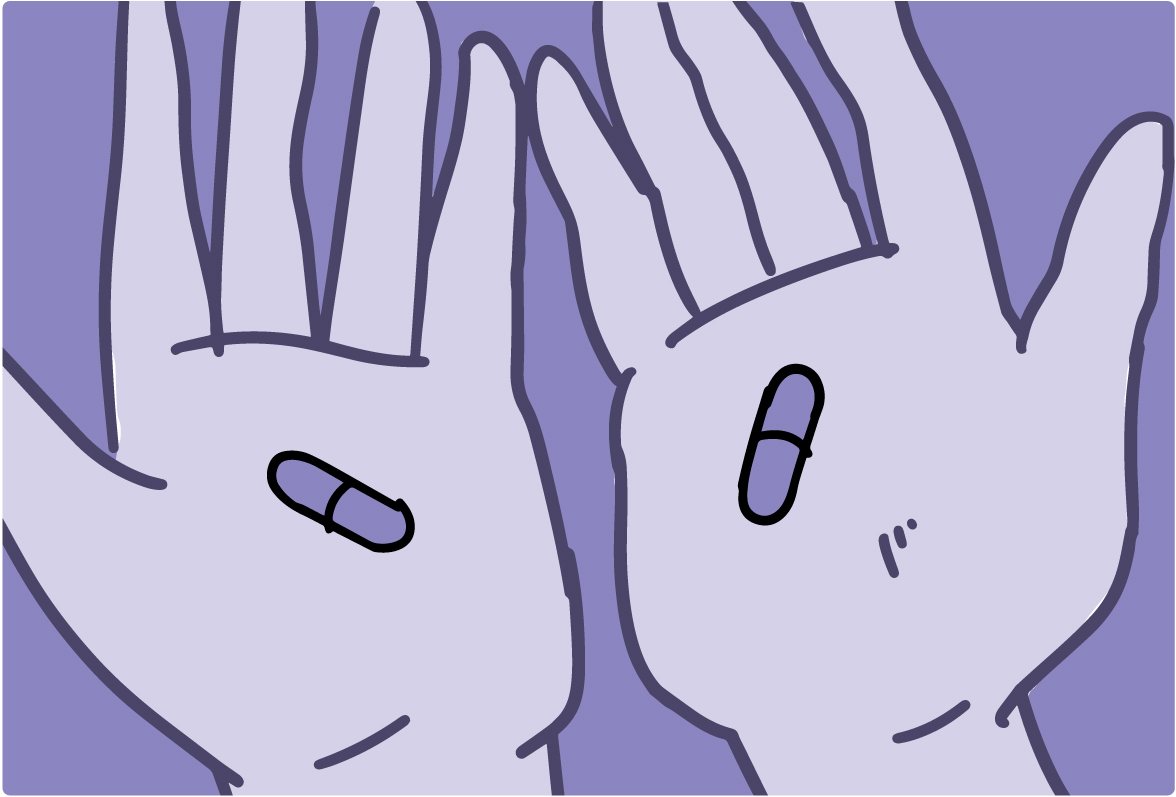The Powerful Placebo
Helping the Brain Heal the Body

If you’re feeling unwell, you may turn to medicine to find relief. But how do you know it was the drug that made you feel better? Sometimes, when you expect a treatment to work, it will. This phenomenon is called the placebo effect. Scientists are looking for ways to harness this effect for medical treatments.
A placebo is an inactive substance or action that resembles a drug or medical treatment. But it isn’t meant to actually fix anything in your body. A pill that doesn’t contain any medicine is one example.
Historically, placebos have been a key part of testing if a new treatment works. In some types of clinical trials, participants are given either an active treatment or a placebo. But they aren’t told which one they’re getting. The treatment must do more to improve the participants’ condition than the placebo. If both groups show similar improvement, it may be from the placebo effect, not the drug.
The placebo effect works by turning on the body’s natural mechanisms for helping us feel better. Our brains make many substances that can lessen pain, stress, anxiety, and other unpleasant feelings.
Dr. Luana Colloca, a physician-scientist at the University of Maryland, Baltimore, calls this our “inner pharmacy.” Just expecting to feel better can cause the release of these substances.
“Our mindset is so critical,” Colloca says, “because our thoughts are not independent from our bodies’ responses.”
The placebo effect can be powerful. It can help with pain, fatigue, depression, anxiety, or nausea. But our inner pharmacy can’t treat everything. It can’t, for instance, make tumors go away, lower your cholesterol, or get rid of infections.
NIH-funded researchers are trying to understand the brain pathways underlying the placebo effect. They’re also looking for ways to use it to improve treatments.
Recent studies have been exploring if placebos can be used to cut down on how much medication people take. People with a A disease or condition that lasts for three months or longer. chronic disease may need to take a drug for a long time. Researchers are testing if placebos can be used to replace some drug doses. These are called dose-extending placebos. The drug effects might continue working for some time as if the patient had taken a real dose.
Dose-extending placebos may be particularly useful with opioids. Opioids are sometimes used to treat chronic pain. But they can be highly addictive and may pose risk for overdose or even death. Scientists are studying whether dose-extending placebos can reduce the chances of opioid addiction.
But for a placebo to work, do you need to believe you’re taking the real thing? Recent research suggests that may not be the case. That’s because your expectations can also affect how well a treatment works.
For instance, if you’re given a drug for pain, it may work better if you’re told that it’s a potent pain treatment. This approach can work for placebos, too—if you’re truthfully told that it has been shown to help.
A drug may also be more effective if you’ve had a good experience with it before. Colloca’s research has shown that even seeing someone else get relief from a treatment can make it more effective.
For these reasons, good communication between patients and health care providers is an essential part of treatment. Having a provider you trust, who is supportive and has empathy, can produce better treatment results.
NIH Office of Communications and Public Liaison
Health and Science Publications Branch
Building 31, Room 5B52
Bethesda, MD 20892-2094
Contact Us:
nihnewsinhealth@od.nih.gov
Phone: 301-451-8224
Share Our Materials: Reprint our articles and illustrations in your own publication. Our material is not copyrighted. Please acknowledge NIH News in Health as the source and send us a copy.
For more consumer health news and information, visit health.nih.gov.
For wellness toolkits, visit www.nih.gov/wellnesstoolkits.




